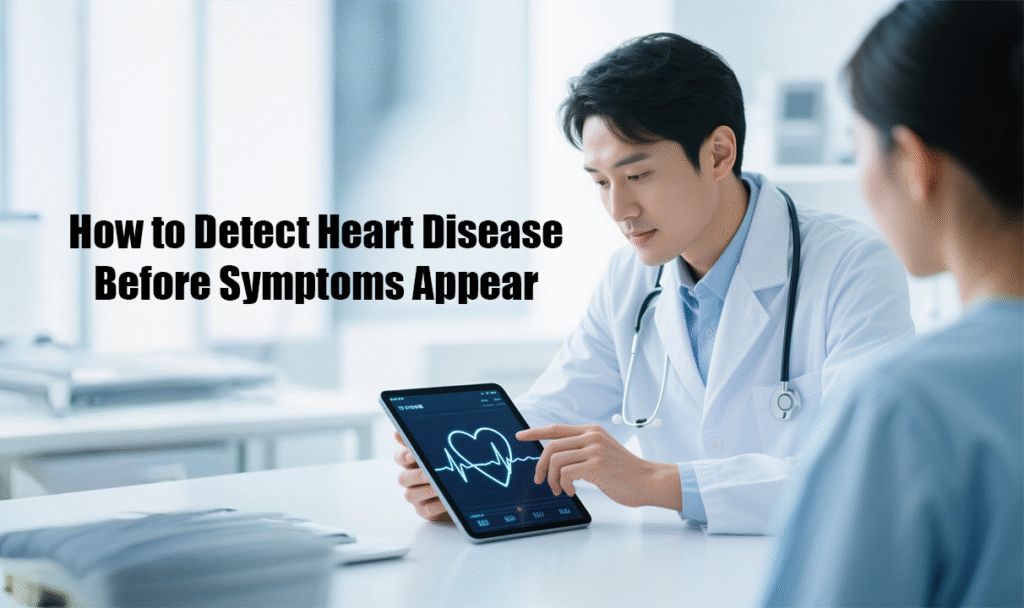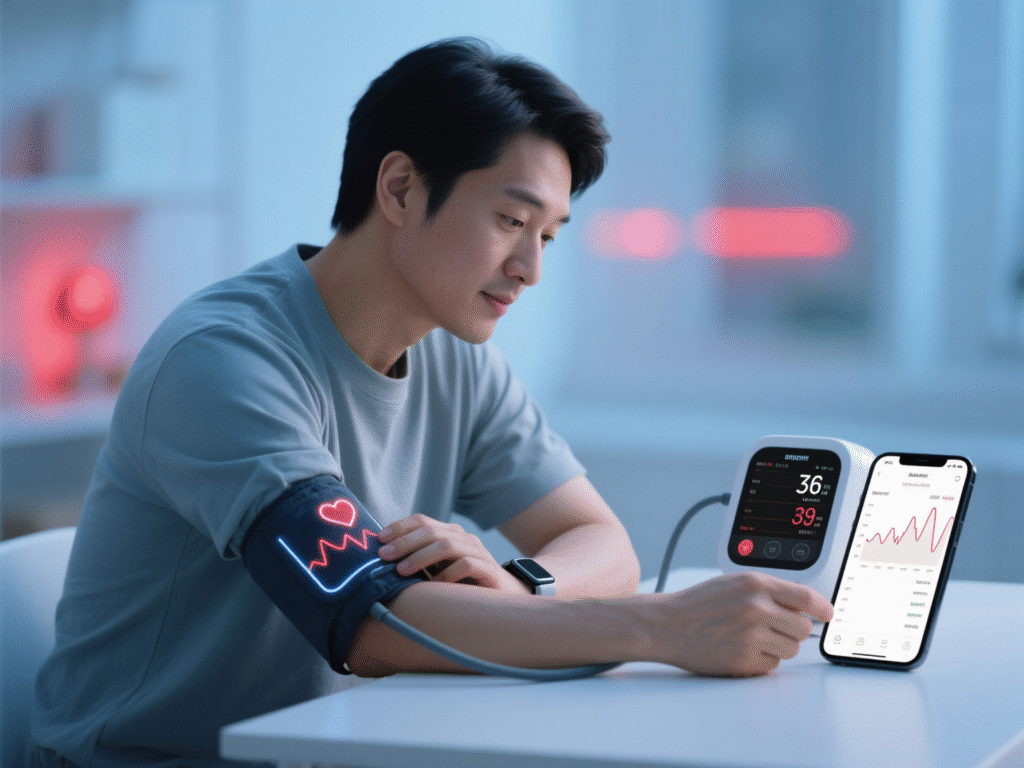How to Detect Heart Disease Before Symptoms Appear

Heart disease can be a silent killer. Many people walk around unaware that their arteries are slowly narrowing or that their heart muscle is under strain. Waiting for symptoms to appear often means waiting too long. So, how do you catch it early? This guide will walk you through practical, science-backed ways to detect heart disease before it starts shouting for attention.
Why Early Detection Matters
When it comes to heart disease, time is muscle. The earlier a problem is detected, the more muscle you save, and the less damage is done. Catching heart disease early means you can make lifestyle changes or start treatment before a heart attack or stroke occurs.
Understanding Asymptomatic Heart Disease

You may think if you are not short of breath or clutching your chest, your heart must be fine. Not always. Many forms of heart disease, especially coronary artery disease, develop quietly over years. You could have high cholesterol, inflammation, or plaque buildup and not feel a thing—until it is almost too late.
Who Should Be Concerned?
High-Risk Individuals
If you fall into certain categories, it is wise to be proactive. This includes people with:
- High blood pressure
- Diabetes
- High cholesterol
- Smoking history
- Obesity
Family History and Genetics
If your parents or siblings had heart problems, especially at a young age, your risk is significantly higher. Genetic predisposition plays a huge role, and early screening is crucial for such individuals.
Common Diagnostic Tests for Silent Heart Disease
Thankfully, there are several non-invasive and low-risk tests that can reveal heart issues before symptoms appear.
Electrocardiogram (ECG)
This simple test measures the electrical activity of your heart. It can detect arrhythmias, previous silent heart attacks, or signs of enlarged heart chambers.
Stress Test
Also called a treadmill test, this checks how your heart responds to physical exertion. It can uncover issues like reduced blood flow that only appear under stress.
Echocardiogram
This ultrasound of the heart shows detailed images of the heart’s structure and function. It helps identify valve issues, wall motion abnormalities, and signs of heart failure.
Coronary Calcium Scan
A specialized CT scan that detects calcium deposits in the coronary arteries. The more calcium, the higher your risk. It is a great early warning tool, especially for people without symptoms.
Blood Tests
Tests such as:
- Lipid profile (cholesterol levels)
- hs-CRP (inflammation marker)
- HbA1c (diabetes control)
- Troponin (heart muscle damage)
These can all give early clues that your heart might be in trouble.
The Role of Lifestyle Monitoring

Early detection is not only about tests. It is also about paying attention to subtle changes in your body.
Blood Pressure Monitoring at Home
A home blood pressure monitor is a must-have. High readings often go unnoticed until they cause heart damage. Check regularly and record your results.
Heart Rate and Rhythm Awareness
Feeling like your heart is skipping or racing without reason? That could be atrial fibrillation or another rhythm problem. A smartwatch or heart rate app can be useful for tracking patterns.
Emerging Technologies in Heart Screening
Medical tech has made it easier than ever to keep tabs on your heart health.
Wearable Devices
Fitness trackers, smartwatches, and even rings can now track heart rate, ECG, sleep, and stress levels. These devices help you spot irregularities early.
AI and Predictive Analytics
Modern software can now analyze large volumes of patient data and predict who is at risk—even before traditional signs appear. Many top heart centers, including Northern Heart Hospital, now use these tools to enhance patient care.
Where to Get Screened in Malaysia
If you are in Malaysia, screening is readily available. Look for a hospital that specializes in cardiac health and has a strong diagnostic and specialist team. A great option is Northern Heart Hospital, which offers a comprehensive range of screening tools and expert care.
Expert Cardiologists at Northern Heart Hospital

Here are some of the leading heart specialists who focus on early detection and intervention:
Dr. Tan Chiang Soo – Interventional Cardiologist
Dr. Tan brings decades of expertise in coronary angiography, stress echocardiograms, and balloon angioplasty. He is among the few certified in Transcatheter Aortic Valve Implantation (TAVI) and coronary brachytherapy. Dr. Tan is especially committed to helping high-risk patients catch issues before they escalate. Learn more about his work at nhearthospital.com.
Dr. Tuan Jiun Haur – Electrophysiologist
Specializing in rhythm disorders, Dr. Tuan is renowned for his work in atrial fibrillation ablation and pacemaker implants. He has trained internationally and was the first to perform 3D AF ablation in Penang. His focus on preventive cardiac electrophysiology makes him an ideal resource for anyone worried about hidden rhythm problems.
Final Thoughts on Staying Ahead of Heart Disease
You would not wait for your car engine to explode before taking it to a mechanic, right? Think of your heart the same way. Regular check-ups, monitoring devices, and a healthy lifestyle are your tools to catch problems before they catch you. If you want to take proactive steps, connect with the experts at Northern Heart Hospital for guidance and testing.
FAQs
1. Can heart disease really show no symptoms at all?
Yes. Many people with coronary artery disease or early-stage heart failure do not feel anything until a major event occurs.
2. How often should I get screened for heart disease?
Annually if you are high-risk. Otherwise, every 3 to 5 years is a good rule of thumb—earlier if symptoms or concerns arise.
3. Are home monitors accurate enough for heart tracking?
Most modern devices are reliable if used correctly. Look for clinically validated models and follow usage guidelines.
4. Can diet alone prevent heart disease?
While a healthy diet helps, it must be combined with regular exercise, stress management, and regular screenings.
5. Is genetic testing useful in heart disease detection?
In some cases, yes. Especially if your family has a history of early heart disease, genetic markers can provide valuable insights.
